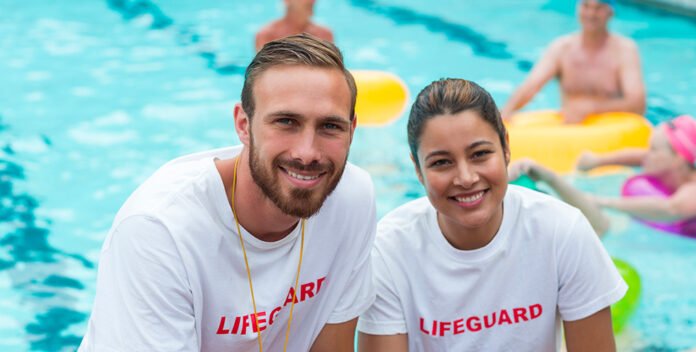Introduction to Lifeguard Course
Lifeguarding isn’t just a job; it’s a responsibility that requires specialized skills and knowledge. Whether you’re considering this as a career path or seeking to enhance your aquatic safety skills, understanding the essentials of lifeguard courses is crucial.
Certification Requirements
Before diving into the course, certain prerequisites need consideration. Explore the various certifications available, each tailored to different environments and levels of expertise.
Skills and Techniques Taught
These courses aren’t just about swimming; they encompass a spectrum of rescue techniques, first aid, and CPR training, equipping you with vital skills to handle emergencies effectively.
Different Course Levels
From beginner to advanced levels, each Lifeguard course offers a different depth of understanding and practice. Understanding the nuances of each level is key to choosing the right fit.
Duration and Structure of Courses
Understanding the time commitment and the balance between theoretical and practical training is essential to make informed decisions.
Qualified Instructors and Training Facilities
The quality of instruction and facilities can significantly impact the learning experience. Evaluating these factors ensures a comprehensive learning journey.
Costs and Financial Considerations
Breaking down the expenses and exploring financial aid or scholarships can ease the financial burden of undertaking these courses.
Job Opportunities Post-Certification
Certification doesn’t just open doors to jobs at pools; it extends to various aquatic environments. Explore the wide array of employment opportunities.
Continuing Education and Recertification
The learning doesn’t stop after certification. Staying updated and the process of recertification are vital aspects.
Testimonials and Success StoriesReal-life experiences from individuals who completed the course shed light on its impact, both professionally and personally.
Myths and Misconceptions
Addressing common misunderstandings about lifeguard courses clarifies doubts for potential candidates.
Tips for Success During Training
Strategies to make the most of your learning journey and tackle challenges head-on.
Safety Protocols and Ethical Responsibilities
Ethical conduct and ensuring safety in various scenarios are pivotal elements of the course.
Global Recognition and Accreditation
Understanding the significance of accreditation and the international recognition of certifications is crucial.
In The Final Summary
Lifeguard courses offer more than just training; they provide a pathway to a rewarding and impactful career. The skills acquired not only enhance safety but also enrich personal growth.
Q1: Are lifeguard courses only for aspiring lifeguards?
A: No, these courses benefit anyone looking to enhance aquatic safety skills, including individuals in various professions.
Q2: Can I pursue advanced courses without prior experience?
A: Some advanced courses might have prerequisites, but beginners can progressively work towards higher levels.
Q3: How long does certification typically last?
A: Certification validity varies; regular recertification ensures updated skills and knowledge.
Q4: What sets apart a good training facility?
A: Experienced instructors, well-equipped facilities, and a comprehensive curriculum distinguish quality training centers.
Q5: Are there career growth opportunities post-certification?
A: Absolutely, certified lifeguards can advance to supervisory roles or transition to related professions within the aquatic industry.

